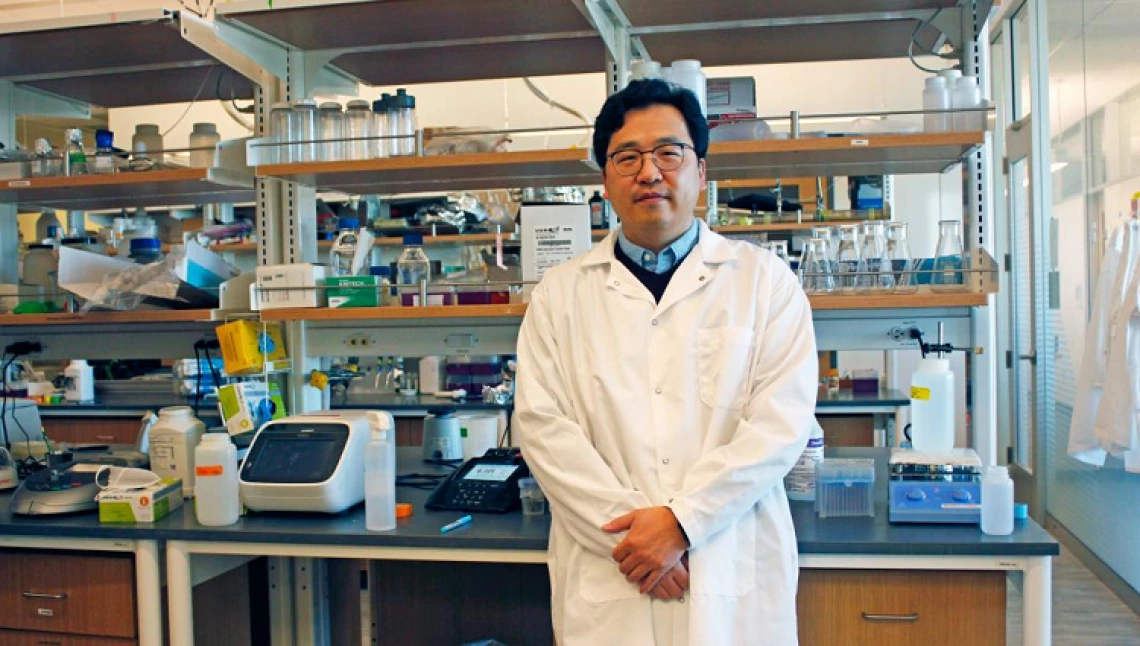Kim Wins National Science Foundation CAREER Award

Assistant professor of materials science and engineering and biomedical engineering Minkyu Kim has earned a $600,000 CAREER Award, the National Science Foundation’s most prestigious award in support of early-career faculty who have the potential to serve as academic role models in research and education. Kim is building new drug delivery vehicles that could improve efficacy and reduce the negative side effects of lifesaving drugs, such as chemotherapy.
“Many drug delivery vehicles fail to reach the right location in the body, and the main reason is because our bodies have this really nice filtering system. So many of them end up in the liver, the kidney or the spleen,” Kim said. “If we can overcome this by developing new drug delivery vehicles, it will be a significant advance.”
Kim is working to combine materials science, synthetic biology and multiscale mechanics to develop a new form of drug delivery microparticle that mimics the properties of a red blood cell and is designed to bypass the body’s filtration systems.
“A red blood cell is about 7 micrometers in diameter, and they go through microcapillaries, which are a lot smaller than that,” said Kim, who is also a member of the BIO5 Institute. “The cytoskeleton of a red blood cell is made up of a well-ordered structure of proteins. When it needs to move through a small space, that structure can be extended by protein unfolding, but once the stresses are removed, the original structure returns. A red blood cell can do this a thousand times and continue to show the same mechanical behavior.”
Red blood cells can also stay in the body much longer than typical drug delivery vehicles.
“Right now, the fate of drug delivery vehicles is up to four weeks, maximum,” Kim said. “My goal is for these microparticles to reach the lifespan of a red blood cell, which is about four months. And eventually, I hope, even longer.”
